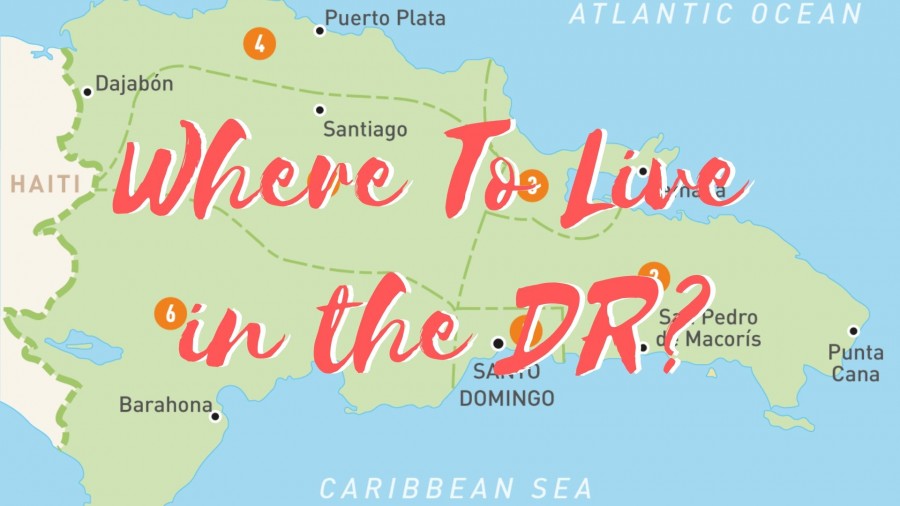28th February 2023
Dominican Republic Relocation Guide 2023
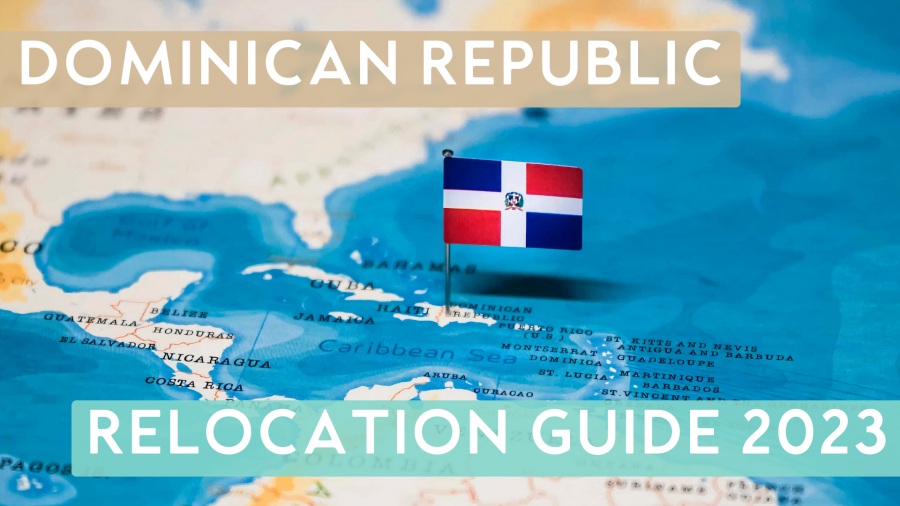
Moving to a new country can be an exciting and daunting experience, especially if you are not familiar with the local customs and way of life. If you are planning to relocate to the Dominican Republic, you are in for a treat. This tropical paradise boasts stunning beaches, a rich culture, and friendly people. However, before you start packing your bags, there are several things you need to know to ensure a smooth transition to your new home.
This relocation guide is designed to give you a comprehensive overview of what to expect when moving to the Dominican Republic in 2023. From the cost of living and healthcare to finding accommodation and adapting to expat life, we've got you covered. So, whether you are looking to retire, work remotely, or start a new life in the Caribbean, read on to discover all the things you need to know before moving to the Dominican Republic.
Table of contents:
1. Entry requirements, visa and residency in the Dominican Republic
Before you make your Dominican Republic relocation, it's important to understand the country's entry requirements and visa policies. For short-term stays of up to 90 days, citizens of many countries, including the United States, Canada, and most European nations, do not need a visa. However, a valid passport and proof of onward travel are required for entry. If you plan to stay in the country for longer than 90 days or work in the Dominican Republic, you will need to apply for a residency visa. There are different types of visas available depending on your reason for moving to the country, such as a work visa or retirement visa.
To obtain a residency visa, you will need to provide a range of documents, including a birth certificate, criminal record check, and medical certificate. You will also need to show proof of income or employment, as well as proof of a local address. The process can be complex and time-consuming, but our relocation experts can guide you through every step of the process and help you obtain the necessary paperwork.
2. How much is a dollar in the Dominican Republic?
The currency used in the Dominican Republic is the Dominican peso (DOP). As of January 2023, the exchange rate is approximately 57 Dominican pesos to 1 US dollar, so if you're wondering how much $100 dollars is in the Dominican Republic, just check out the current currency exchange rate. It's important to keep in mind that exchange rates can fluctuate, so it's best to check the current rate before making any financial transactions.
It's also worth noting that while some businesses in tourist areas may accept US dollars, it's generally better to use Dominican pesos for day-to-day transactions. ATMs are widely available in major cities and tourist areas, and credit cards are also accepted at many establishments. Additionally, if you need to know how to send money to the Dominican Republic, there are several options available such as bank transfers, online money transfer services, and Western Union.
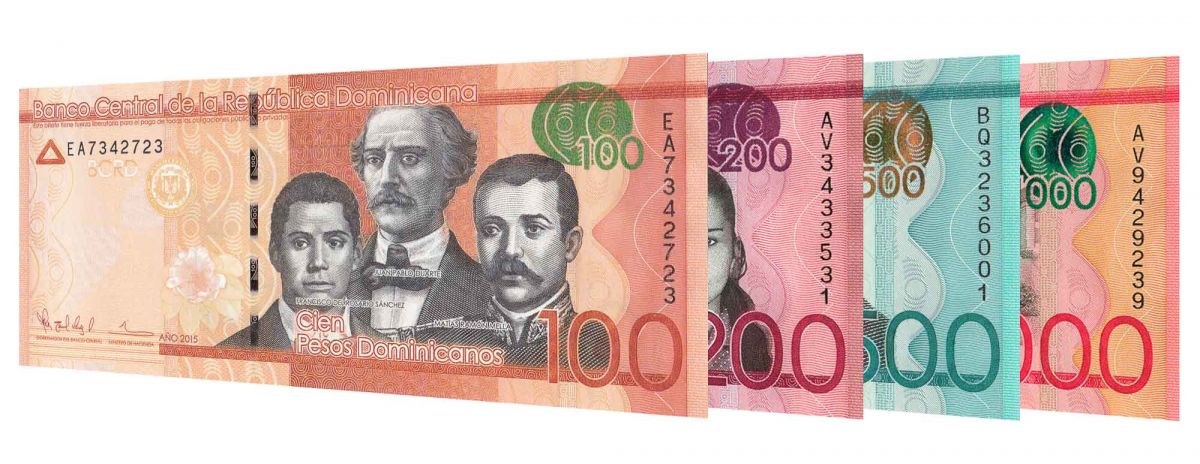
3. What should I bring when moving to the Dominican Republic?
When moving to the Dominican Republic, it's essential to know what to bring and what to leave behind. Firstly, it's important to bring all important documents, including your passport, birth certificate, and medical records. You may also need to bring documents such as marriage and divorce certificates, depending on your situation. It's advisable to bring copies of these documents as well, in case the originals are lost or stolen.
In addition to documents, you should also bring any prescription medication you may need, as well as over-the-counter medicines such as pain relievers, antihistamines, and stomach remedies. While these medications may be available in the Dominican Republic, it's important to ensure that you have a reliable supply.
However, there are also restrictions on certain items that can be brought into the country. For example, firearms, explosives, and drugs are strictly prohibited, and bringing them into the country can result in serious consequences. You should also be aware that there are restrictions on the amount of currency that can be brought into the country without declaration. It's important to check with your airline or travel agent to ensure that you're complying with all restrictions when bringing items into the country.
4. Can you survive in the Dominican Republic on $1,000 a month?
Living on $1,000 a month in the country is possible, but it largely depends on your lifestyle choices and where you choose to live. The cost of living in the Dominican Republic varies depending on the region and city you reside in. For example, the cost of living in Santo Domingo, the capital city, is generally higher than in smaller cities like Las Terrenas. Basic utilities such as electricity, water, and gas cost around $100 per month, while internet and cable TV can cost an additional $50 to $100 per month. Internet is your best bet when it comes to calling the Dominican Republic. Groceries, transportation, and healthcare are also relatively affordable in the country.
To make the most of your budget, it's important to be mindful of your spending habits. Eating out regularly and indulging in expensive activities can quickly add up, so cooking at home and seeking out free or low-cost entertainment options can help stretch your dollar further. Additionally, consider negotiating prices when possible and shop around for the best deals on goods and services.
Overall, with careful budgeting and lifestyle choices, it's possible to live comfortably on $1,000 a month in the Dominican Republic. However, those with more extravagant tastes or high housing expenses may struggle to make ends meet.
5. Where are the best places to live in the Dominican Republic?
The Dominican Republic is a country full of beautiful places to live, but where are the best places for expats to settle? One popular destination is Santo Domingo, the country's capital city. With a population of over 2 million people, Santo Domingo has a bustling urban center with plenty of modern amenities. It's also a great place to experience the rich culture, history and amazing real estate opportunities in the Dominican Republic.
Another great place to migrate to in the Dominican Republic is Santiago, the country's second-largest and richest city. Located in the heart of the Cibao Valley, Santiago has a thriving economy and is known for its beautiful parks and museums. It's also close to the beach and other popular tourist destinations, making it a great place for those who want to be close to the action.
Puerto Plata is a popular option for those who prefer a more laid-back lifestyle. Located on the northern coast of the country, Puerto Plata is known for its beautiful beaches and outdoor activities like hiking and surfing. It's also home to a large expat community, making it easy to find like-minded individuals to connect with. Other popular expat destinations in the Dominican Republic include San Cristóbal, Villa Altagracia, and La Vega, among others.
.jpg?1677244377718)
While all of the previously mentioned cities have their own unique charm and appeal, there is one town that stands out among the rest: Las Terrenas. This picturesque beach town has become a top destination for expats due to its breathtaking beaches, charming European-style town center, and laid-back lifestyle. Las Terrenas also boasts a thriving expat community, making it easy for newcomers to connect with others and find their place in the community. Las Terrenas homes for sale.
If you're considering a move to the Dominican Republic, don't settle for just any location. Take the time to explore Las Terrenas and discover what makes it so special. From the stunning coastline to the vibrant town center, Las Terrenas truly has something for everyone. Do not leave without seeing our most beautiful area yet - Playa Bonita. It is the closest to the best place to live in the Dominican Republic we could get! Contact a real estate agent to find your dream home in this paradise and start living your best life in the Dominican Republic.
6. What is healthcare in the Dominican Republic like?
The healthcare system in the Dominican Republic is a mix of public and private healthcare providers. The public system is free and available to everyone, but it is generally underfunded and understaffed, which means that wait times can be long and the quality of care may not always be up to standard. The private system, on the other hand, is well-funded and staffed by highly trained medical professionals, but it can be expensive and may not be accessible to everyone.
The cost of healthcare on the island varies depending on the type of care needed and the provider chosen. Basic consultations and procedures are relatively affordable, while more specialized care can be expensive. When you immigrate to the Dominican Republic, it is important to note that healthcare costs can add up quickly, so it is advisable to have medical insurance that covers the cost of treatment in case of an emergency.
7. Is the Dominican Republic Safe?
The Dominican Republic has a reputation for being a relatively safe country, but like any place, it has its share of safety concerns. Crime rates are generally higher in urban areas, particularly in Santo Domingo, and tourists can sometimes be targeted for theft or scams. It is important to take precautions to stay safe while in the country. The safest place to live in the Dominican Republic would be the countryside and smaller, more intimate towns.
Some tips for staying safe in the Dominican Republic include avoiding walking alone at night, being aware of your surroundings, keeping valuables out of sight, and not leaving drinks unattended in public places. It is also important to research any neighborhoods or areas you plan to visit, as some may have higher crime rates than others. By being vigilant and taking common-sense precautions, it is possible to stay safe and enjoy all that the Dominican Republic has to offer.
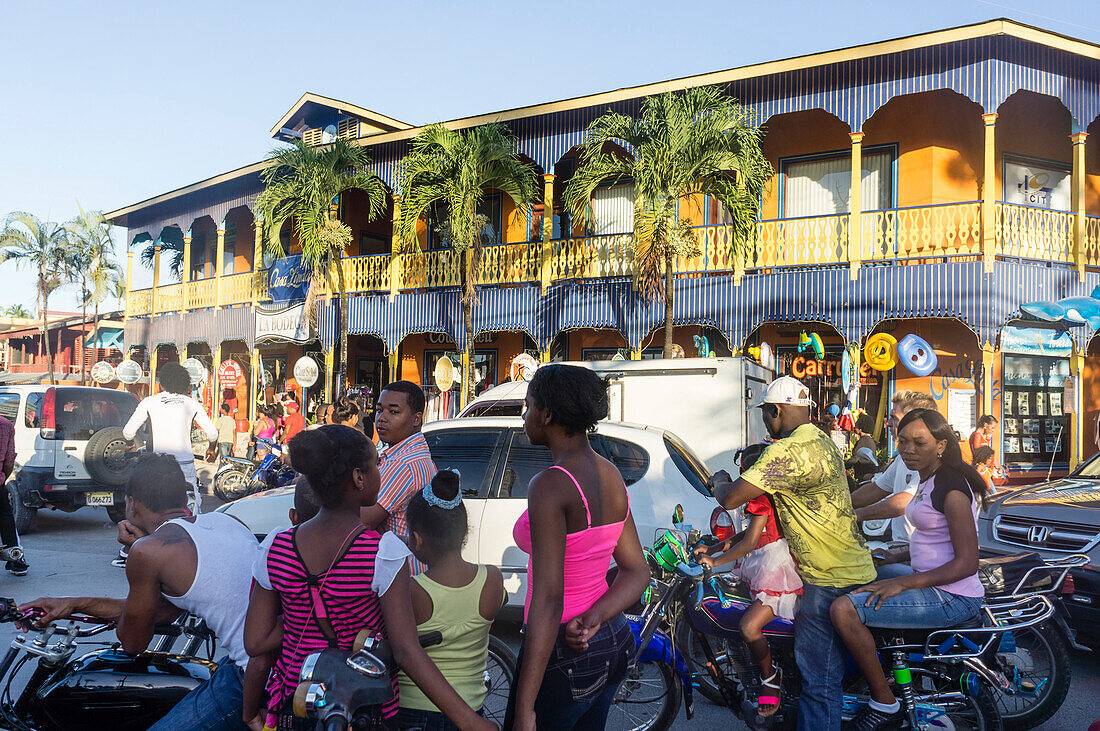
8. What is driving like in the Dominican Republic?
Driving in the Dominican Republic can be quite different from what you're used to. The rules of the road may not always be obeyed, and drivers can be quite aggressive. In general, it's best to be extra cautious when driving in the Dominican Republic.
Driving is on the right side of the road, and roads are generally in good condition. However, there are some roads that are in poor condition and may be difficult to navigate. Traffic can also be congested, especially in urban areas. Be sure to carry your driver's license and any required car documents with you at all times while driving, as the police may stop you and ask to see them. It's also a good idea to keep your car doors locked and windows up while driving in the Dominican Republic, especially in areas that are known for crime.
9. Should I buy or rent a home in the Dominican Republic?
As a real estate agency in Las Terrenas, we often receive inquiries from clients about whether they should buy or consider Dominican Republic apartments for rent. While both options have their benefits and drawbacks, ultimately, the decision will depend on your personal circumstances and goals.
One of the main advantages of buying a property in the Dominican Republic is the potential for long-term financial gain. Real estate prices in the country have been steadily increasing over the past few years, and with the right investment, you could see a significant return on your purchase in the future. Additionally, owning a property can provide a sense of stability and security, as well as the freedom to customize and decorate your living space to your liking.
On the other hand, renting a property in the Dominican Republic can offer more flexibility and lower upfront costs. Renting allows you to try out different neighborhoods and living arrangements before committing to a long-term investment. It also relieves you of the responsibility of property maintenance and repairs, which can be costly and time-consuming. However, keep in mind that renting can also come with the risk of unstable landlords or unexpected rent increases.
Check out these rental listings managed by our agency, to make sure your experience is smooth and joyful! \
As for the real estate market in the Dominican Republic, prices and availability can vary widely depending on the location, property type, and other factors. In Las Terrenas, for example, there is a range of options from luxury villas to affordable apartments, with prices typically ranging from $100,000 to $1 million or more. It's important to work with a trusted real estate agent to navigate the market and find a property that meets your needs and budget. Dominican Republic condos for sale.
10. How do I find a property in the Dominican Republic?
The process of purchasing a property in the Dominican Republic as a foreigner can be a bit different from what you may be accustomed to in your home country. However, with the right guidance and knowledge, it can be a smooth and straightforward process.
It is important to begin by finding a reputable real estate agency or attorney who can guide you through the process of buying real estate here. They will be able to provide you with information on the properties available, including the pricing and legal requirements for purchasing them. It is crucial to work with a professional who has extensive knowledge of the local market and can advise you on the best options for your needs and budget.
Once you have found the property you want to purchase, you will need to make an offer and negotiate the terms of the sale. Once both parties have agreed to the terms, a deposit will typically be required to secure the property. The deposit can range from 10-30% of the purchase price and will be held in an escrow account until the closing process is complete.
At this point, a due diligence period will begin. This is the time when your attorney or real estate agent will conduct a thorough investigation of the property, including a title search, to ensure that there are no liens or other legal issues that could affect the sale. If any issues are found during this period, they must be resolved before the sale can proceed.
Once the due diligence period is complete, the parties will sign a purchase agreement, and the remaining balance of the purchase price will be paid. The transaction will then be recorded at the corresponding registry office, and the new owner will receive the title of the property. It is essential to work with a trusted attorney to ensure that all legal requirements are met and that the transfer of the property is done correctly.
11. How to adapt to expat life in the Dominican Republic?
Moving to a new country can be challenging, but with some effort, it can also be a rewarding and enriching experience. To adapt to expat daily life in the Dominican Republic, it is important to learn about the local customs and culture. This can involve learning some basic Spanish phrases, as well as becoming familiar with local cuisine, music, and traditions. Getting involved in community events and activities is also a great way to meet new people and learn more about the local culture.
It can be helpful to connect with other expats in the area, either through social media groups or Dominican Republic expat organizations. These groups can provide a wealth of information and support, from recommendations on the best restaurants and activities to local tips on navigating the healthcare and banking systems. Additionally, finding a hobby or activity that you enjoy can help you feel more connected to the community and make the transition to expat life smoother.
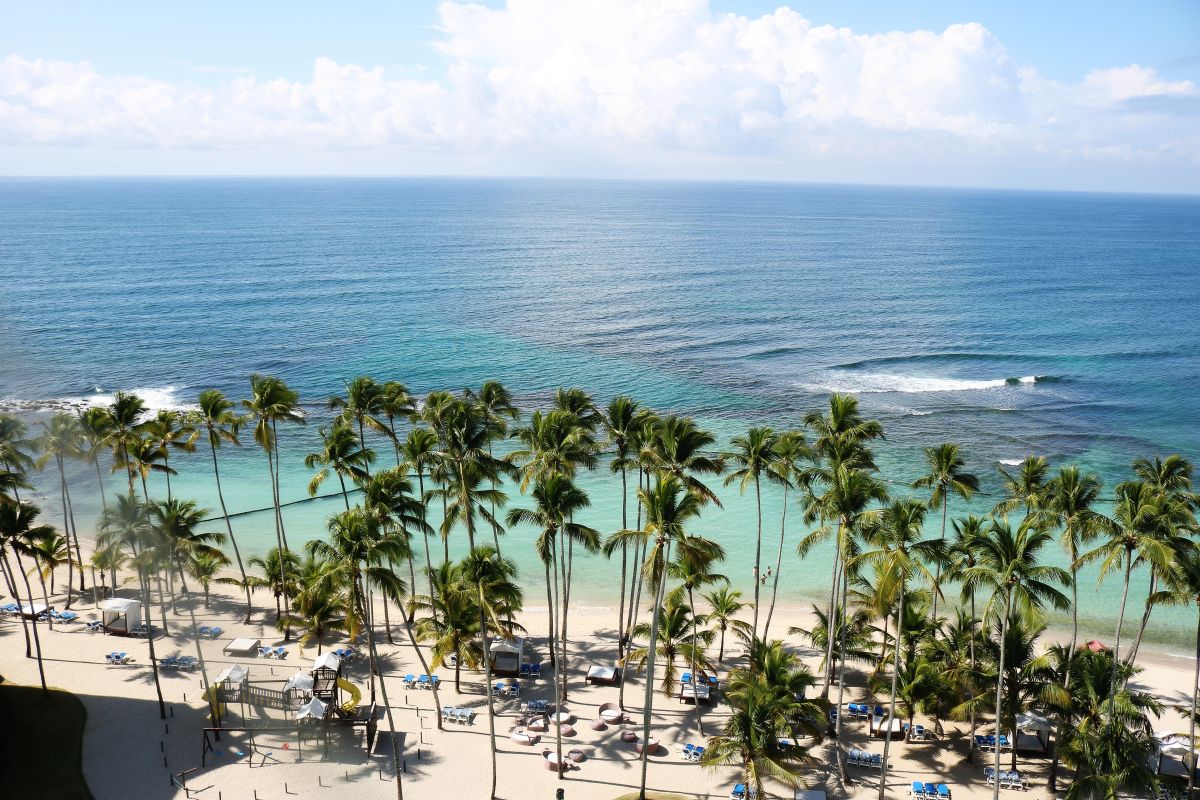
12. Pros and cons of living in the Dominican Republic in 2023
As of 2023, the Dominican Republic offers a lower cost of living compared to many Western countries. Housing, food, and transportation costs are relatively low, making it an attractive option for retirees, digital nomads, and others looking to save money. The country also has beautiful beaches, warm weather year-round, and a vibrant culture. The Dominican people are known for their warmth and hospitality, and many expats enjoy the sense of community and camaraderie that they find in the country.
However, living in the Dominican Republic does come with some challenges. The healthcare system is not as advanced as in some Western countries, and quality can vary widely between public and private hospitals. Crime can also be an issue in some areas, and expats are advised to take precautions to stay safe. The process of buying property can also be more complicated than in other countries, and it is important to work with a reputable real estate agent and lawyer to ensure a smooth transaction.
In conclusion, relocating to the Dominican Republic can be a great choice for those seeking a lower cost of living, warm weather, and vibrant culture. However, it is important to consider the potential challenges as well and to make an informed decision based on individual circumstances and priorities. With proper planning and preparation, expats can thrive in the Dominican Republic and enjoy all the country offers.
Las Terrenas Real Estate Discovery Tour
Las Terrenas Real Estate Discovery Tour is our VIP Pack or the perfect toolbox for people who are serious about their plan to invest or live in Las Terrenas. It includes every paid resource and service our agency offers and will definitively help you save time and money by knowing if this is the right place for you.
Book Now
Rate this page
Click on star to rate it
Average rating 0/5. Vote count 0





